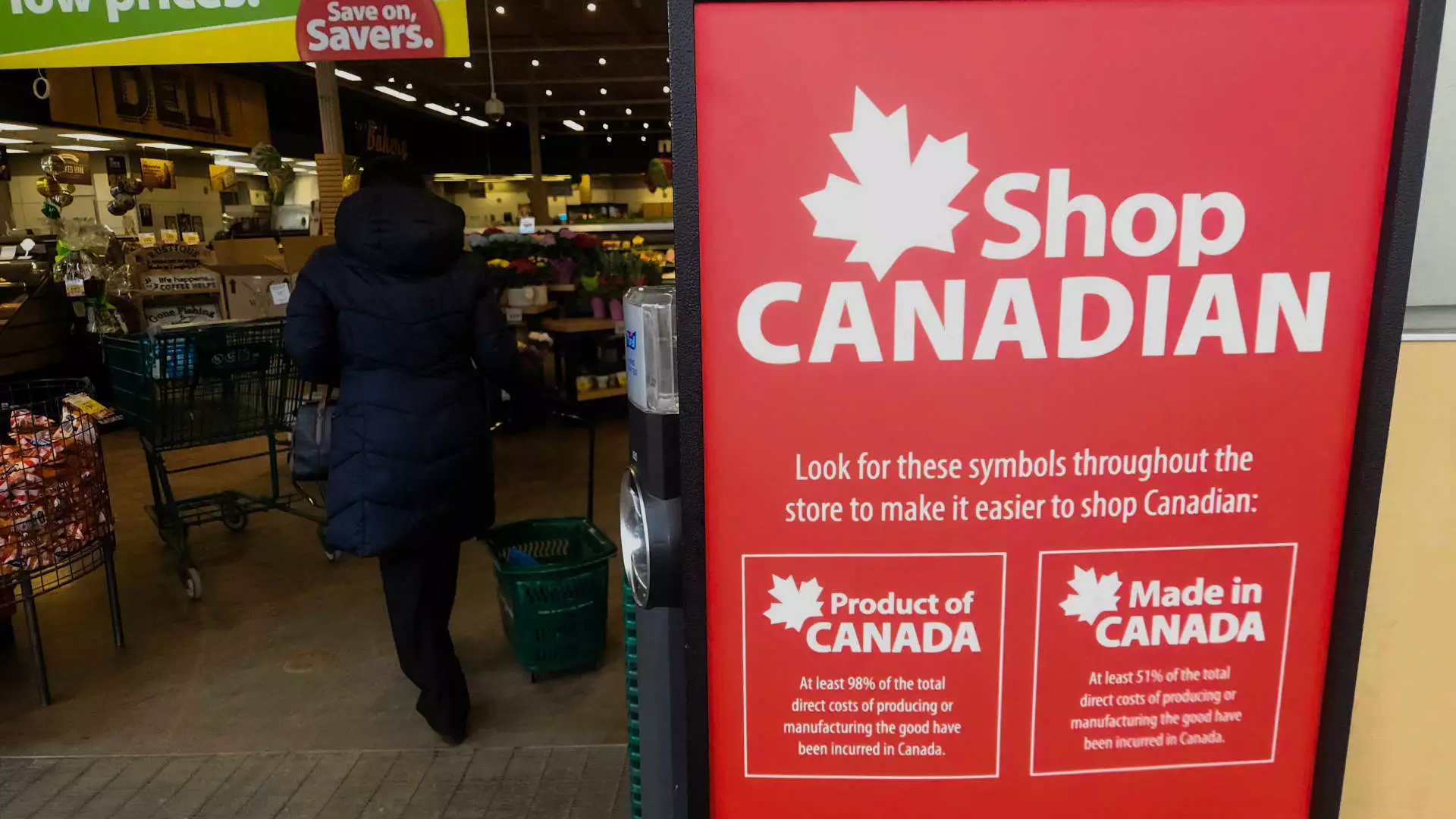The U.S.-Canada trade relationship, long celebrated as a pillar of economic amistad, is facing tumultuous storms due to aggressive tariffs imposed by the Trump administration. While President Trump touts these duties as a necessary means of reclaiming manufacturing jobs for America, many small businesses and ordinary Canadians perceive them as a direct assault on their livelihoods. In a realm where a staggering $762.1 billion of goods flowed between the neighbors in 2024, it is evident that the implications extend far beyond mere percentages on trade agreements.
Historically, the two nations have enjoyed a mutually beneficial relationship, with Canada relying on the U.S. as a primary export destination. However, the newly implemented tariffs, such as a 10% charge on energy goods and 25% on certain imports, symbolize a breach of trust. The euphoria of free trade has given way to a battlefield of tariffs that disrupts established partnerships and threatens to extinguish the harmonious economic interactions that once flourished.
The Emotional Toll on Entrepreneurs
The recent trade hostilities have cast a shadow of uncertainty over many small businesses in Canada. Corinne Pohlmann, representing the Canadian Federation of Independent Business, makes it abundantly clear: the emotional fallout from these tariffs can be as damaging as the financial repercussions. Small enterprises, which thrive on strong relationships and reliability, are now faced with the distress of renegotiating contracts and reassessing their business strategies in the wake of these new barriers.
The psychological element in trade negotiations is often overlooked, yet it plays an undeniably critical role. Entrepreneurs who have built their businesses on trust and connection now wrestle with feelings of betrayal. The tariffs have prompted significant anxiety among those who rely on partnerships with U.S.-based companies, as they are unsure of how often their best-laid plans will be disrupted by arbitrary levies.
Creative Resistance: A Symbol of National Pride
In reaction to the tariffs, many Canadians are channeling their frustrations into creative expressions of nationalism. Businesses such as Balzac’s Coffee Roasters have rebranded their products to evoke a sense of solidarity among Canadians. The humble “Americano” has become the proudly rebranded “Canadiano,” illustrating that while tariffs may threaten financial stability, the spirit of resistance remains firmly intact.
This clever marketing strategy underscores how small businesses are not only absorbing economic setbacks but are also transforming their messaging to align with national pride. The use of the maple leaf as a symbol on products signifies a collective response to trade disputes that aim to enhance local patronage. Products “prepared in Canada” are now marketed directly, as businesses adapt to the adversities and become beacons of national loyalty in a time of strife.
Retaliatory Actions and Their Consequences
One striking example of Canada’s response to U.S. tariffs was the Liquor Control Board of Ontario’s sudden halt on all purchases of American products. By waving the bold banner “For the good of Ontario, for the good of Canada,” the LCBO has adopted a political stance veiled as consumer choice. This bold move has ignited a broader discussion about the use of economic policy as a tool to reinforce national identity.
However, this cycle of retaliation raises concerns about sustainability. While reactionary measures may appear satisfying in the moment, can they serve the long-term interests of economic health? By choosing to cease transactions with long-term trading partners, there’s an inherent risk of creating an insular marketplace, where businesses may ultimately find themselves more vulnerable than unified.
The Cost of Soft Power
While tariffs frequently act as instruments of hard power, they have an undeniable impact on the U.S.’s soft power as well. Former Secretary of State Antony Blinken articulated a palpable fear: the erosion of the U.S.’s global influence. This decline in soft power can manifest in many pernicious ways, from weakened international relationships to a decline in the U.S. dollar’s dominant role in global trade.
A tarnished reputation amongst trading partners could lead to diminished bargaining power and negotiations that are less favorable to U.S. interests. The long-standing relationships with established partners like Canada and Mexico, revered as the backbone of American commerce, are now at risk of being irrevocably marred. Trust lost is often not easily regained, and Canadian businesses may carry the scars of these economic skirmishes long after the dust has settled.
The tariffs’ repercussions are multifaceted and extend deeply into the fabric of U.S.-Canada relations. The once-stalwart economic friendship appears increasingly fragile, with emotional and psychological impacts being felt on both sides of the border. As small businesses navigate these hostile waters, their responses will shape the future landscape of trade relationships in a changing world.

